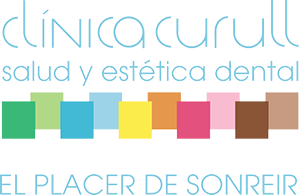
WHAT IS BRUXISM?
Bruxism is the unconscious action of intensely grinding your teeth.
More and more people suffer from this ailment, which is considered a reflex of nervous tension in the teeth and in the mouth. Bruxism tends to affect women more than men and especially between 20 and 40 years of age.
The diagnosis is usually made during a dental examination: the surface of the molars, which normally looks similar to peaks and valleys, becomes completely smooth. Sometimes a clicking sound is also appreciated when performing the movements of the joint when we open our mouth, when eating or when yawning.

SYMPTOMS AND TREATMENT OF BRUXISM
The symptoms of bruxism are such as headaches, earaches or teeth and discomfort in the jaw or when chewing.
The recommended treatment is a discharge splint to wear at night. It is a custom-made mouth guard. It is intended to keep the jaw in a more relaxed position, prevent the teeth from rubbing against each other and protect the joint.
In addition to treating the symptoms, you have to learn to relax, dedicating some time during the day to rest the muscles of the jaw, teeth and tongue by massaging the area.
Some hard foods such as nuts or candies should be avoided, and not take too large bites that force us to open our jaw excessively. Chewing gum or biting your nails is not recommended.
Frequent Questions
How do I know if I need a shock plate if I am not aware of my bruxism?
When we clench or grind our teeth we exert 40 times more power than when we chew. The thing is that bruxism does not always generate symptoms, although the signs of bruxism are clearly identifiable and the dentist will be able to show you: wear especially on the edge of the teeth or tips of the fangs, molars that lose their shape (each time are flatter), etc. It can also present with symptoms such as headache, neck or ear pain, a feeling of tension in the jaw, etc.
What could happen in the future if I don't sleep with a shock plate?
In addition to suffering great wear of our tooth enamel that can be accompanied by dental sensitivity, fissures and fractures of our teeth and molars, we can suffer jaw and ear pain, headache or tension headaches, facial and neck tension, and problems (pain, clicking noise, difficulty opening the mouth, etc.) in the temporomandibular joint.
Is bruxism cured?
The answer is NO. Bruxism is not a disease, but a disturbance of the nervous system mainly due to stress. If we manage to control this stress and other factors, we can reduce the level of bruxism almost to a minimum so that it is not harmful to the teeth, the muscles or the joint.






